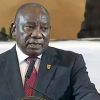-
play_arrow
On The Street On The Air | Kaya 959
Matric Supplementary exams: What’s new from 2019
By Nomali Cele
As the matric supplementary exams system currently stands, matriculants have less than two weeks after the receipt of their results to register for supplements. Failure to register for the matric supplementary exams, whose deadline is usually around mid-January, means the learner will not be able to sit down for the exam. A supplementary exam is an opportunity for a learner to improve their overall result.
After registering, learners used to have to sit for their matric supplementary exams in February. This didn’t leave much time for studying. At present, each matriculant can supplement the results of only up to two subjects. If on their statement, your child had two low marks (below the level 2/30 per cent mark) they are automatically registered to write matric supplementary exams for both.
But what happens to learners who didn’t fail their matric but are unhappy with their results? What happens if your child needs to improve their marks for more than two subjects in order to have for entry to their university programme of choice? Improved marks also mean better chances to access funding.
With how the matric supplementary exams currently work, your child would have difficulty correcting all their marks to something they are happy with. It’s difficult enough to study for the currently allowed two subjects maximum, worse if they want to rewrite more subjects.
The Department of Basic Education has announced that going forward, instead of matric supplementary exams, the department will hold a second national exam mid-year, for learners who were studying during the previous year. Speaking to eNCA, Basic Education Spokesperson, Elijah Mhlanga, cited poor performance from the majority of learners who sit down for the matric supplementary exams as the major driver to changing the system.
According to Mhlanga, not only will learners sitting for the second exam have longer to study for the exams but will be able to register for and rewrite more than two subjects. But learners who were in matric full-time and are now looking to supplement their results, will not be the only beneficiaries of the new national exams. Part-time students and those who’ve made a number of attempts to get their matric previously will also fall under the new, second national exam.
READ: Reasources to help your matriculant deal with bad results
What doing away with matric supplementary exams means for your child
The national exam will be a winner should your child wish to rewrite more than one subject, whether due to failing or wanting to improve their results.
The downside of the national exam being later in the year is that your rewriting child will have to delay going to university as the exam, and the final result, will be later in the year. But there is a chance of your child improving their marks.
It will slow the “next” of your child’s educational life and that’s not necessarily a bad thing. The last two years of high school are rushed, forgetting that they’re supposed to be laying down the foundation for the rest of your child’s life. A slowed down approach to tertiary and “life after school” in general, might not necessarily be a bad thing.
Written by: Kayafm Digital
Similar posts
-
MORE ARTICLES

WATCH: CEO of Known Associates Entertainment and Film producer, Tshepiso Chikapa-Phiri on movie productions

After 30 years of democracy, are we more united or divided?

Nestlé laces baby food in SA and other poor countries with sugar, report finds

DA announce economic policy to rescue SA from unemployment

Where’s Bester? Fire breaks out at Kgosi Mampuru prison
-
QUICK LINKS
UpComing Shows

The Hive
With Bonolo "Bee Sting" Molosiwa
Every "Hive" needs a Queen B and Bonolo "Bee Sting" Molosiwa is Kaya 959's honey who brings in the money. With her bubbly personality, infectious laugh, Bee Sting radiates positive energy which is all you need to get your weekend off to the best start. Don't miss the Afrobeat Dancehall Ragga (ADR) Top 10 on The Hive with Bee Sting every Saturday from 18h00 - 21h00.
close
The Hive
With Bonolo "Bee Sting" Molosiwa
Every "Hive" needs a Queen B and Bonolo "Bee Sting" Molosiwa is Kaya 959's honey who brings in the money. With her bubbly personality, infectious laugh, Bee Sting radiates positive energy which is all you need to get your weekend off to the best start. Don't miss the Afrobeat Dancehall Ragga (ADR) Top 10 on The Hive with Bee Sting every Saturday from 18h00 - 21h00.
close
Tune and Chill
with Tyroline Franks
Tune and Chill with Tyroline Franks on Kaya 959. Weekends, Saturday and Sunday, 15pm-18pm.
close
On the Beat
On the Beat with George Manyosi on Kaya 959. Saturday's, 18pm-21pm.
closeConnect with Kaya 959
DownLoad Our Mobile App
© 2024 Kaya 959 | On The Street On The Air










